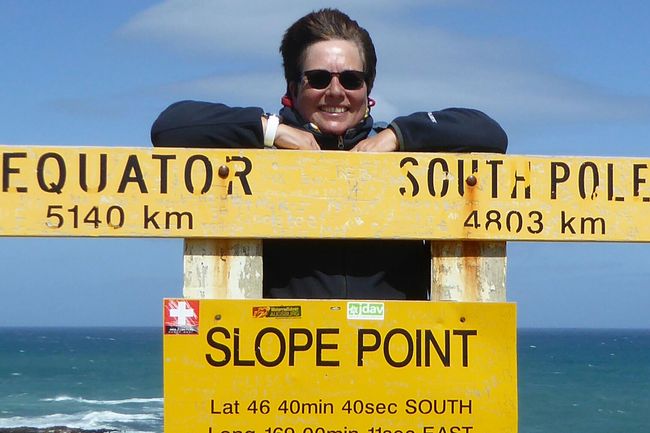
Neuseeland: 8000km solo durch das schönste Ende der Welt
vakantio.de/8000km_durch_neuseeland
Day 24 - Christchurch - The Quake City
प्रकाशित: 08.08.2019
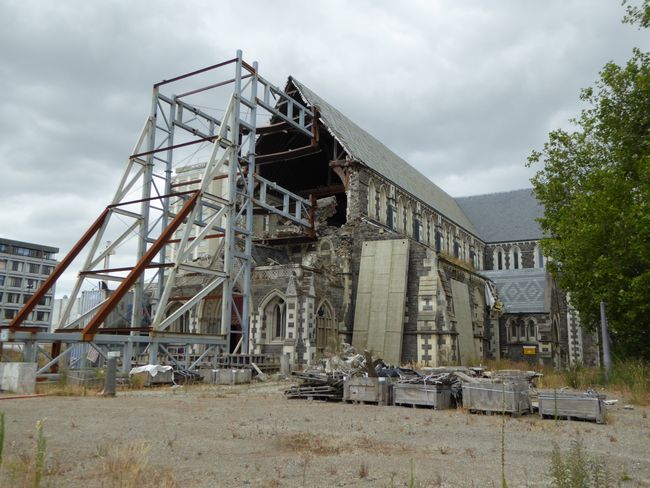
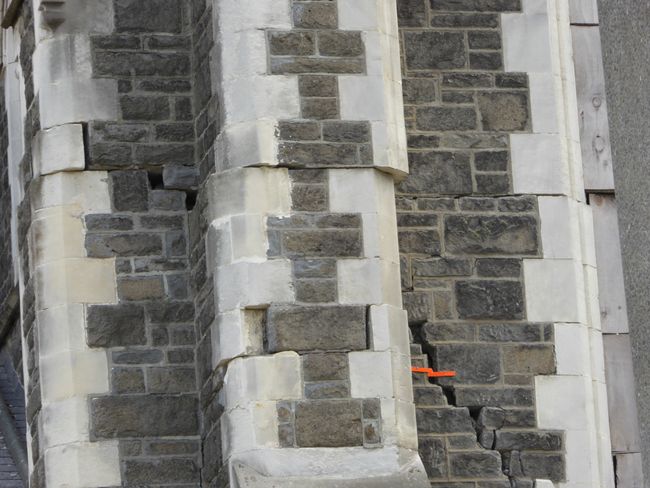


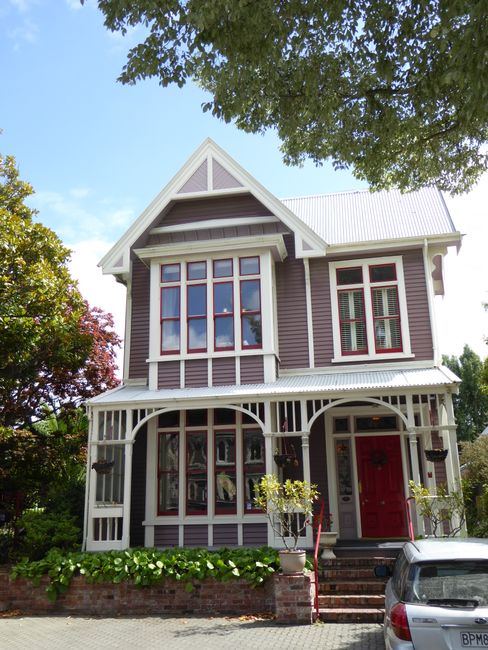
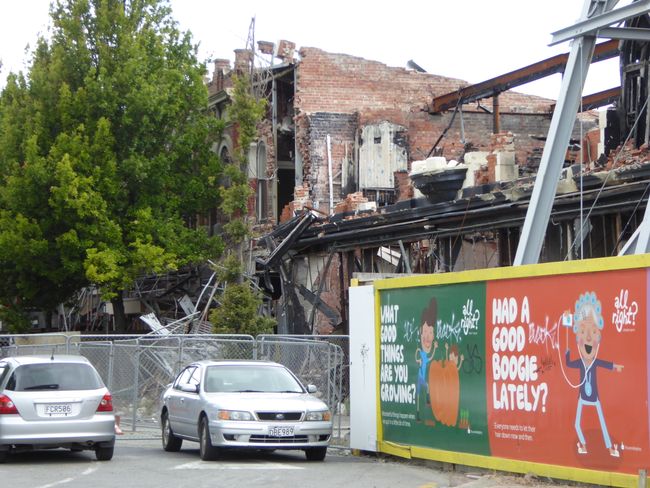
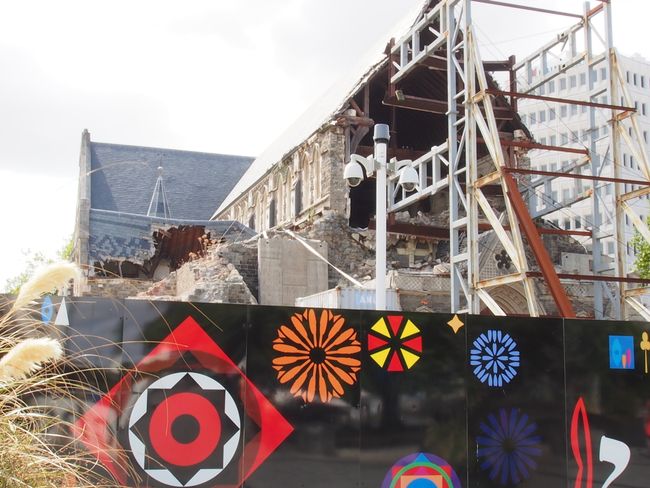
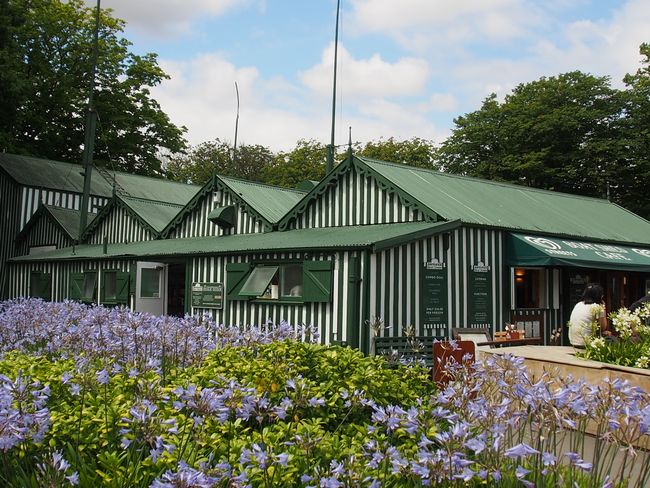
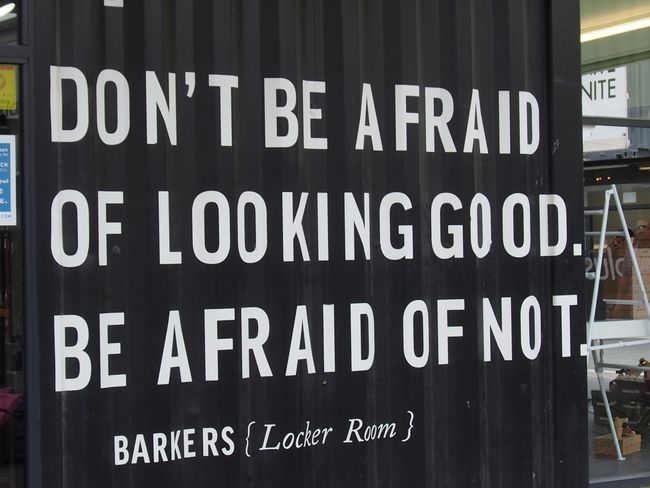
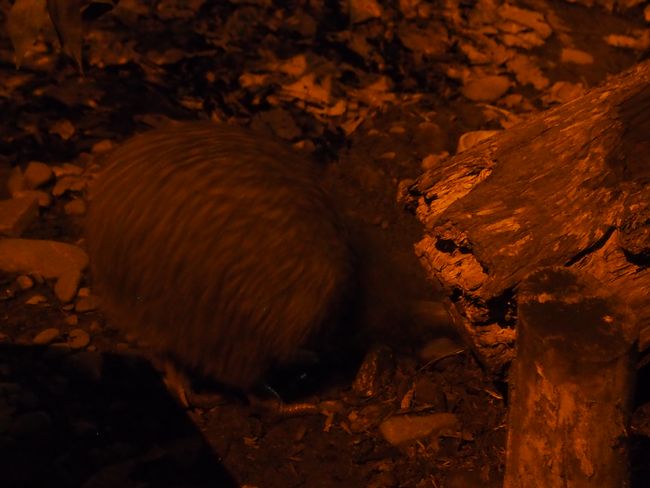
समाचारपत्रस्य सदस्यतां गृहाण
07.01.2015
It has been 3 weeks since I arrived in New Zealand. Halfway through and it's unimaginable to leave here in just three weeks. My motel turned out to be a stroke of luck. The bed is comfortable, the water is hot, the room is spacious, and the Wi-Fi is good. For breakfast, I found a plunger coffee pot (Bodum), so the coffee will taste better than instant. The toast surprisingly doesn't burn the bread, and since I can't find a dish brush or dish soap, I don't have to wash dishes today! I'm already considering whether I should come back here tonight. I actually want to go in the direction of Tekapo, but once I have explored Christchurch and finally watched the film at the Quake Museum that lasts over an hour, Tekapo will be too far away. And I want to drive the Scenic Highway 72, which starts here in Rangiora and doesn't go across Christchurch. Well then. First, let's go to Christchurch, whose outskirts can be reached in 20 minutes.
However, it takes me about 40 minutes to get to the city center. Parking spaces are still abundant in Christchurch.
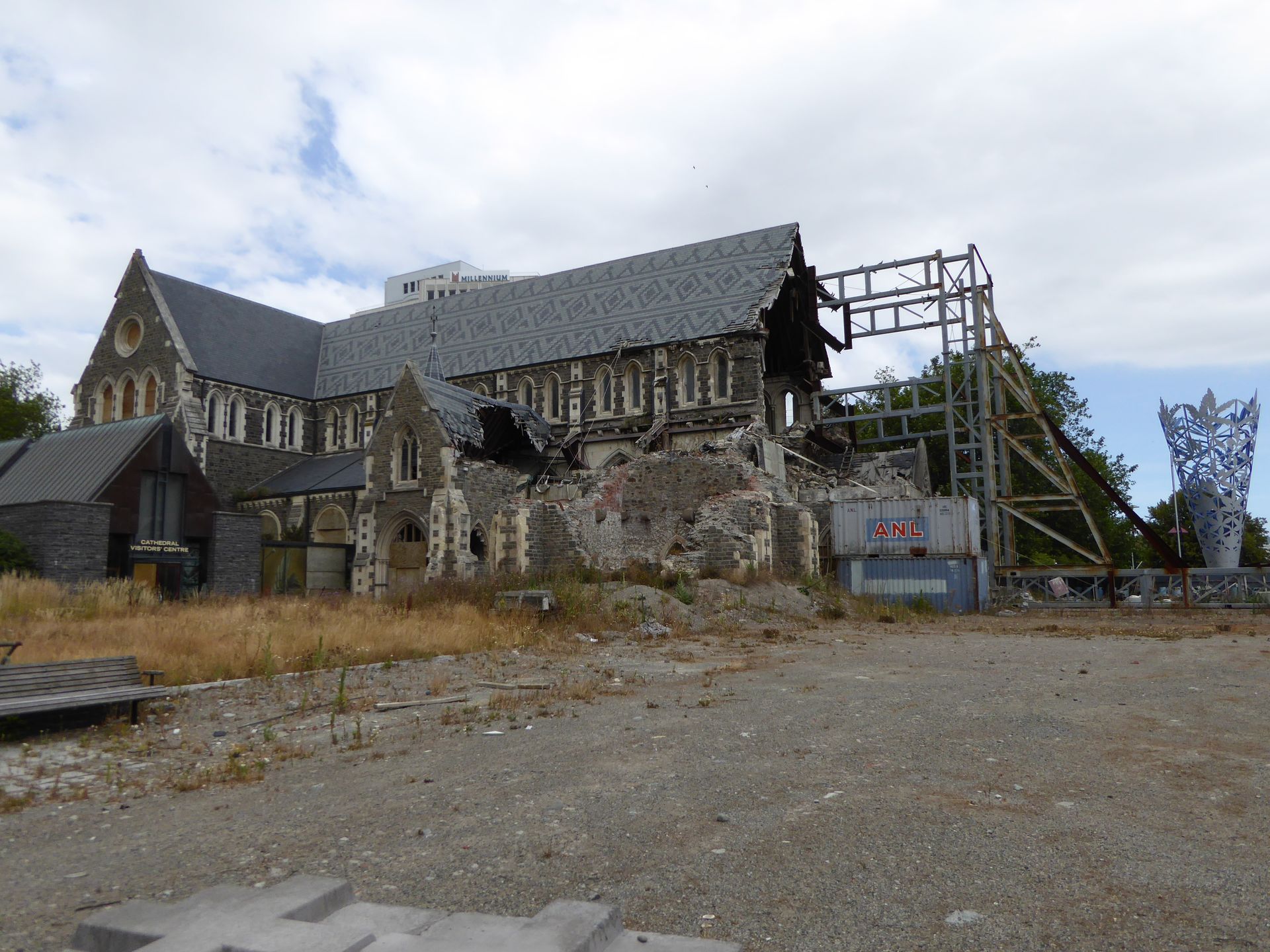
It was the same last year when I was here on January 31st. There are so many vacant lots due to demolished buildings (which were uninhabitable after the earthquake in February 2011) that are now used as parking spaces, and they are accordingly cheap. You can park here all day for 5 dollars. I park right behind the destroyed Christchurch Cathedral and go for a walk.
The weather is cloudy and rather cool with 18 degrees. I definitely need a jacket today. The cathedral is still in the same deplorable condition, and the statue that fell during the earthquake on February 22, 2011 is still missing from the pedestal on the square in front of it. The city is still a huge construction site, and you can hear construction noise non-stop. The skyline of closed skyscrapers with boarded up windows and locked entrances is complemented by dozens of cranes. Today, buildings are constructed with state-of-the-art earthquake-proof technology, which means that the reconstruction will take several years.
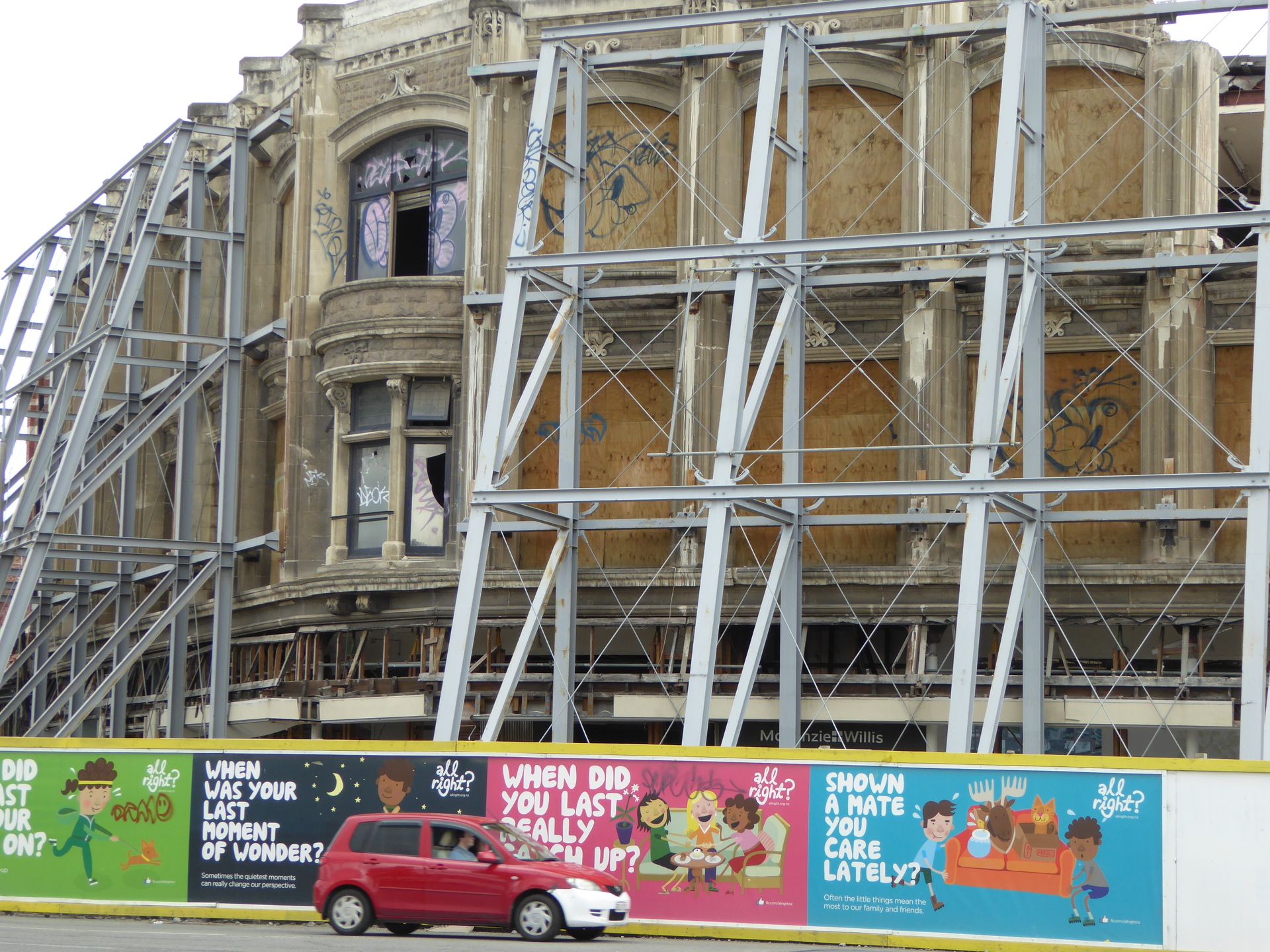
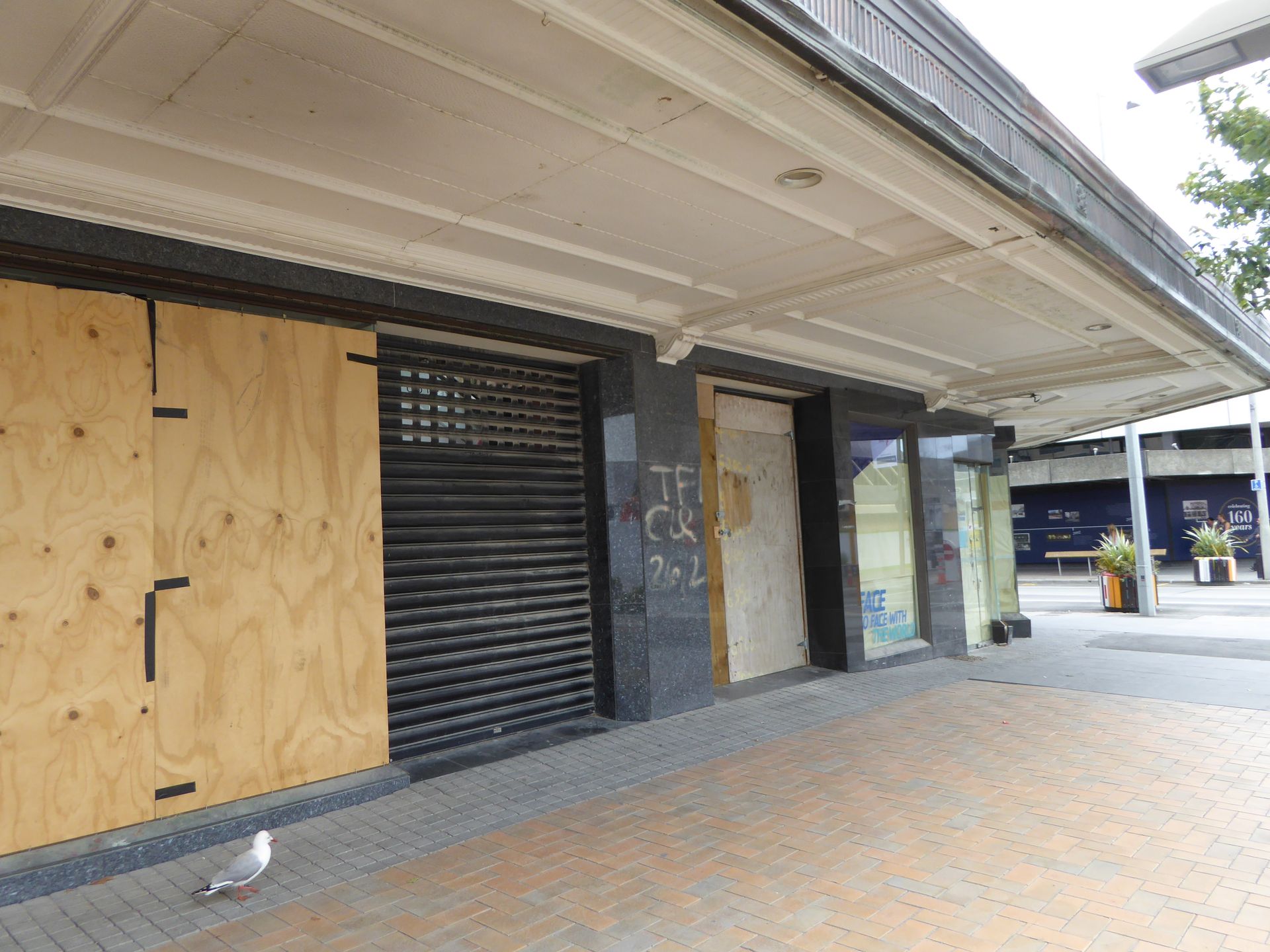
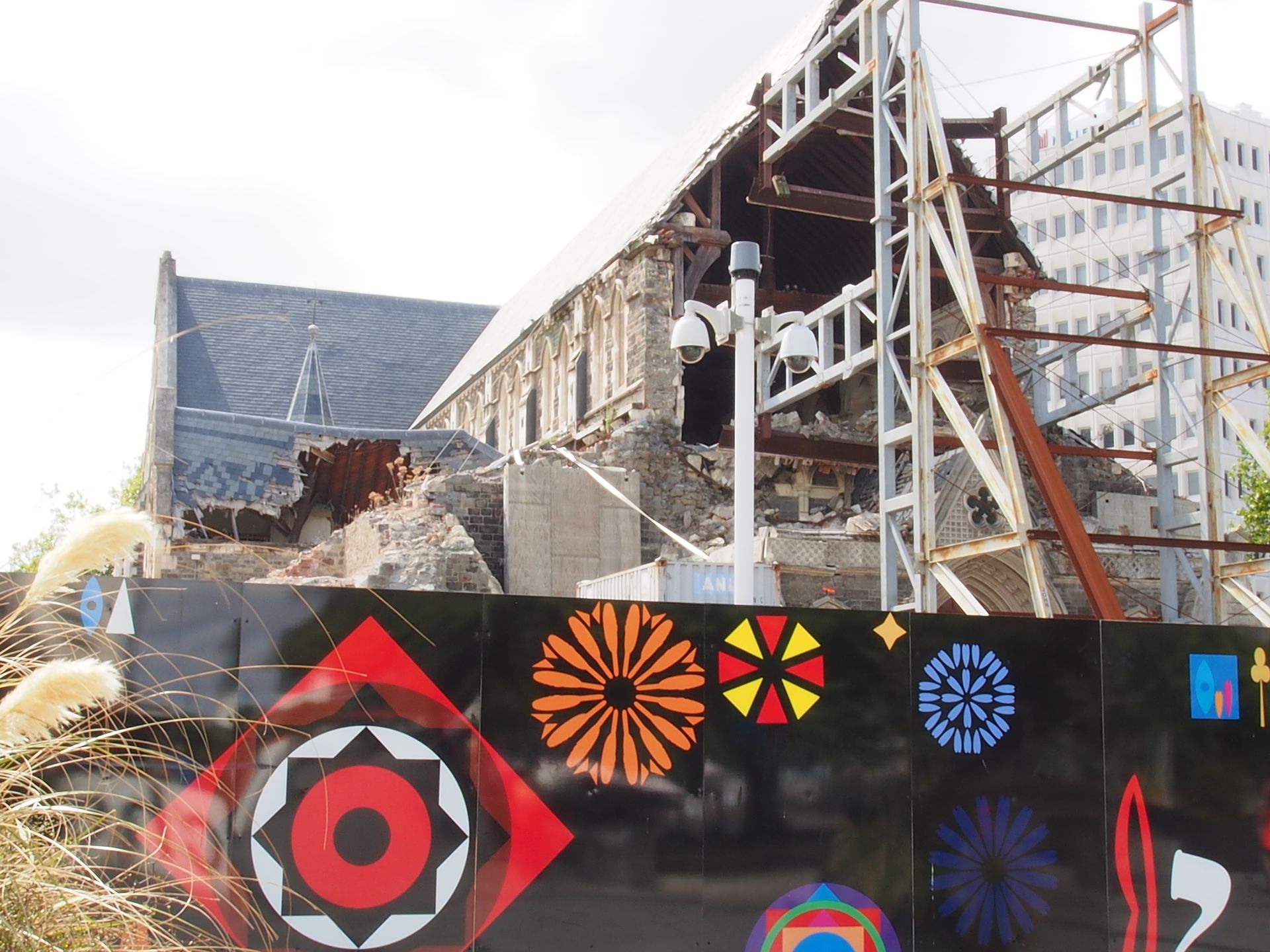
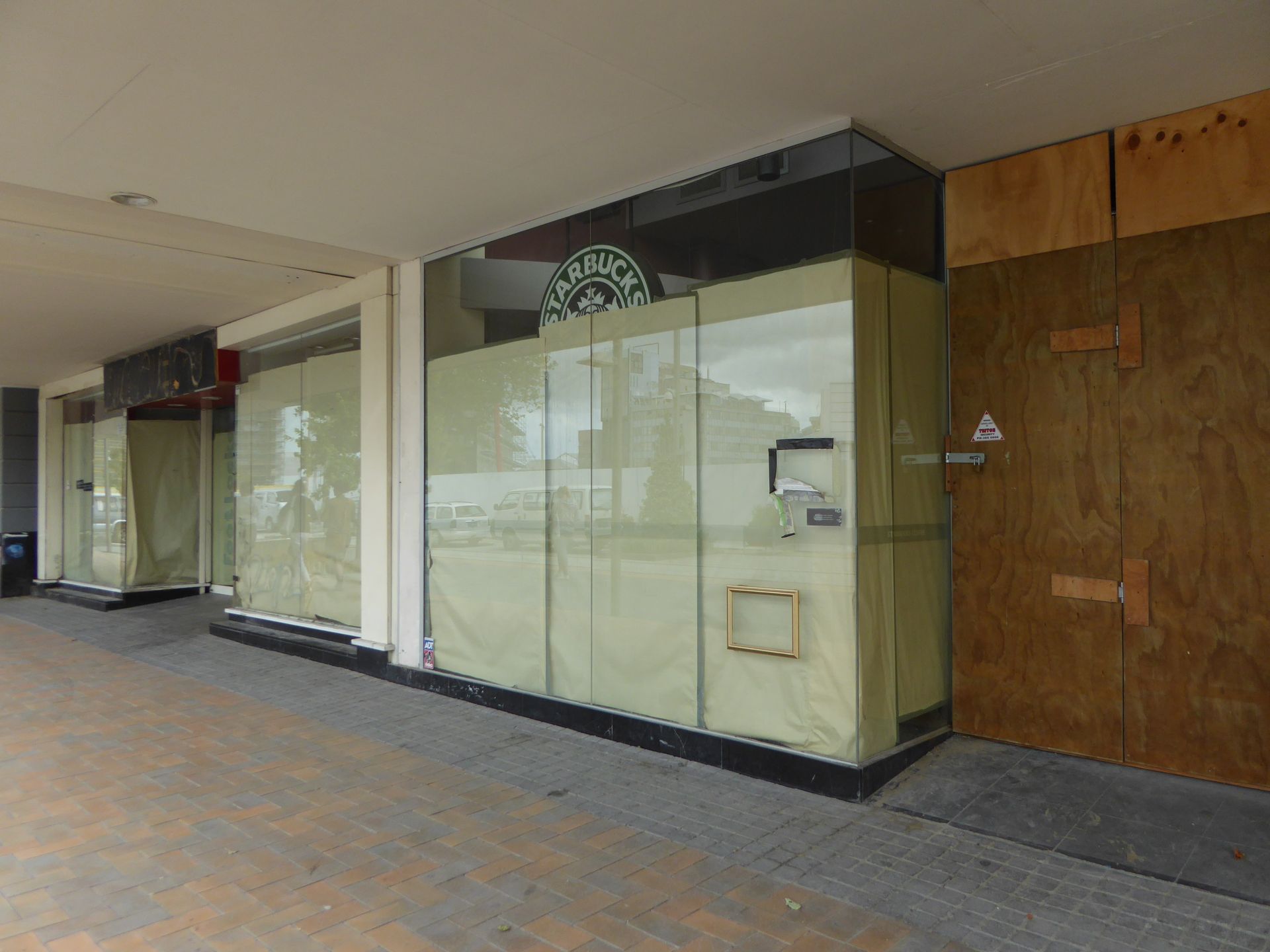
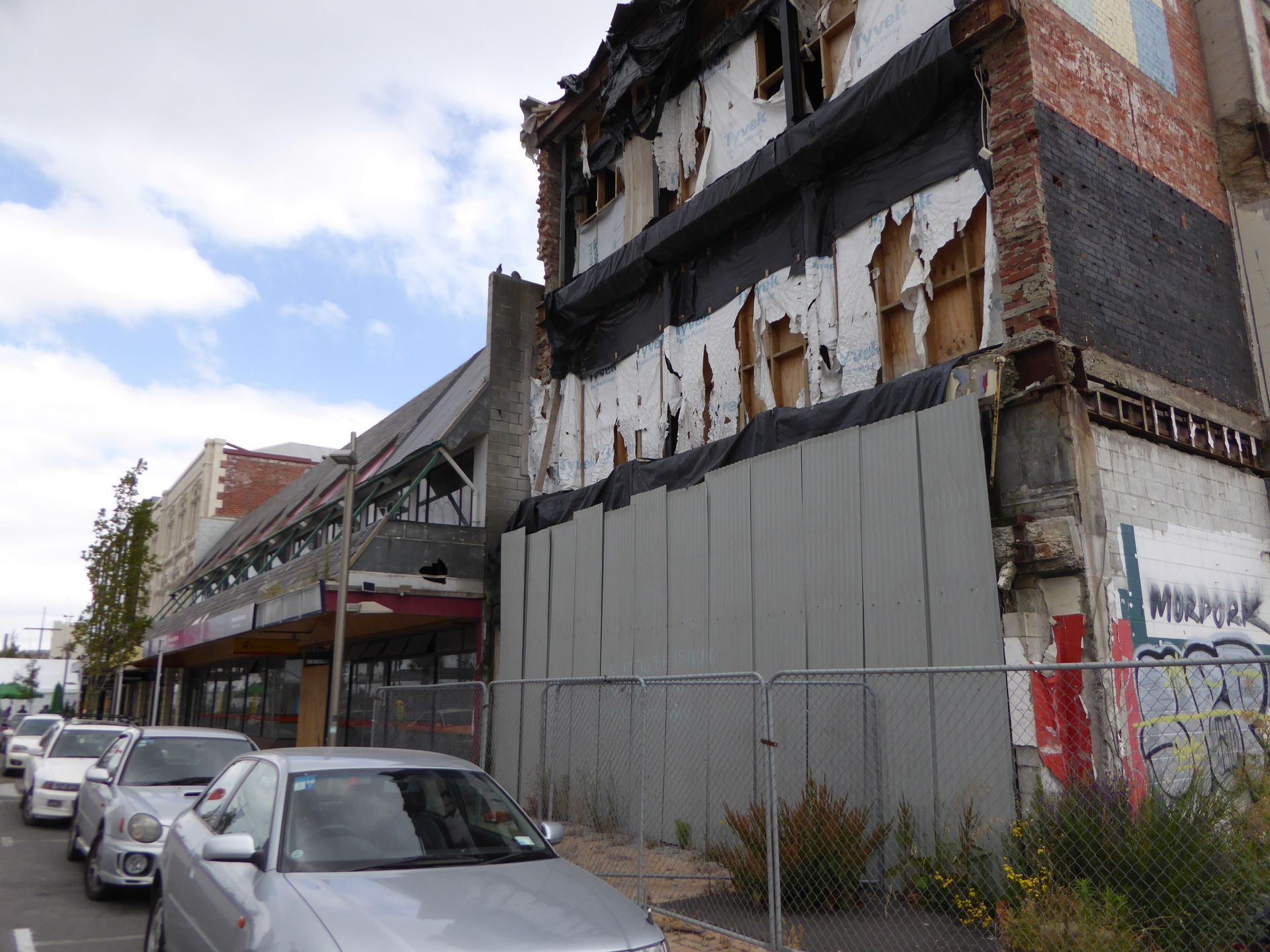
Initially, 40 billion New Zealand dollars were planned for the reconstruction, and it is not only the construction that needs to be done, but also the demolition of many buildings is still pending. Around 10,000 houses have already been demolished because they could not be saved. When driving through residential areas in Christchurch, these scars are visible everywhere in the neighborhoods. Meanwhile, "For Sale" signs can be seen on numerous empty plots of land, and the population of Christchurch is increasing again. However, this is also due to the large number of external, often foreign, construction workers and experts.
Christchurch must have been a beautiful city before the earthquake. Photos that can be seen everywhere show an almost British-looking city with many sturdy gray stone buildings. Many old buildings are still visible, but are often covered or supported by huge scaffolding. I walk from Cathedral Square towards the Botanic Gardens.
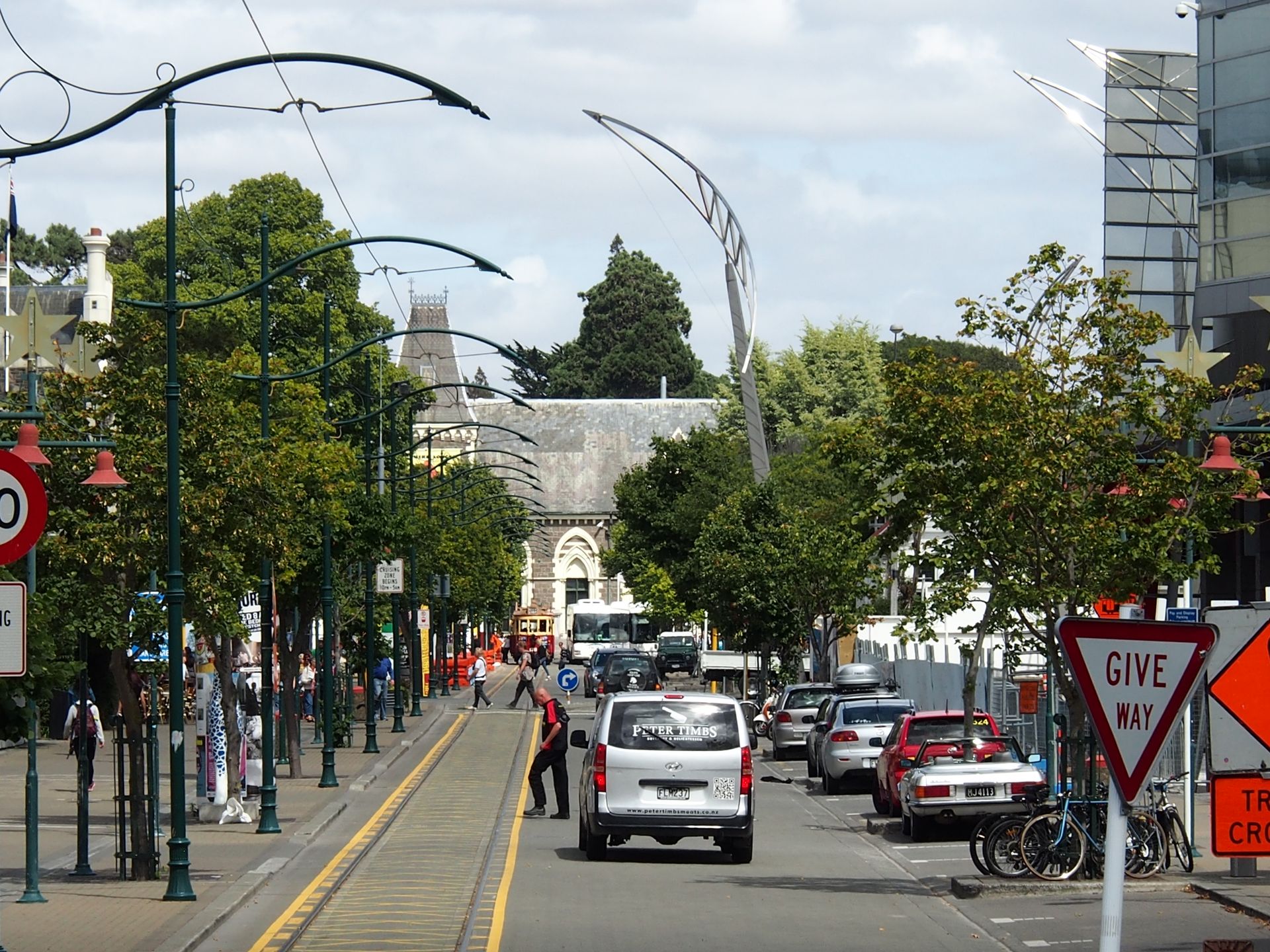
Worcester Street runs along the Arts Center of Christchurch, an old long stone building that practically covers an entire street side and goes around the corner. It's all fenced off, a huge construction site.
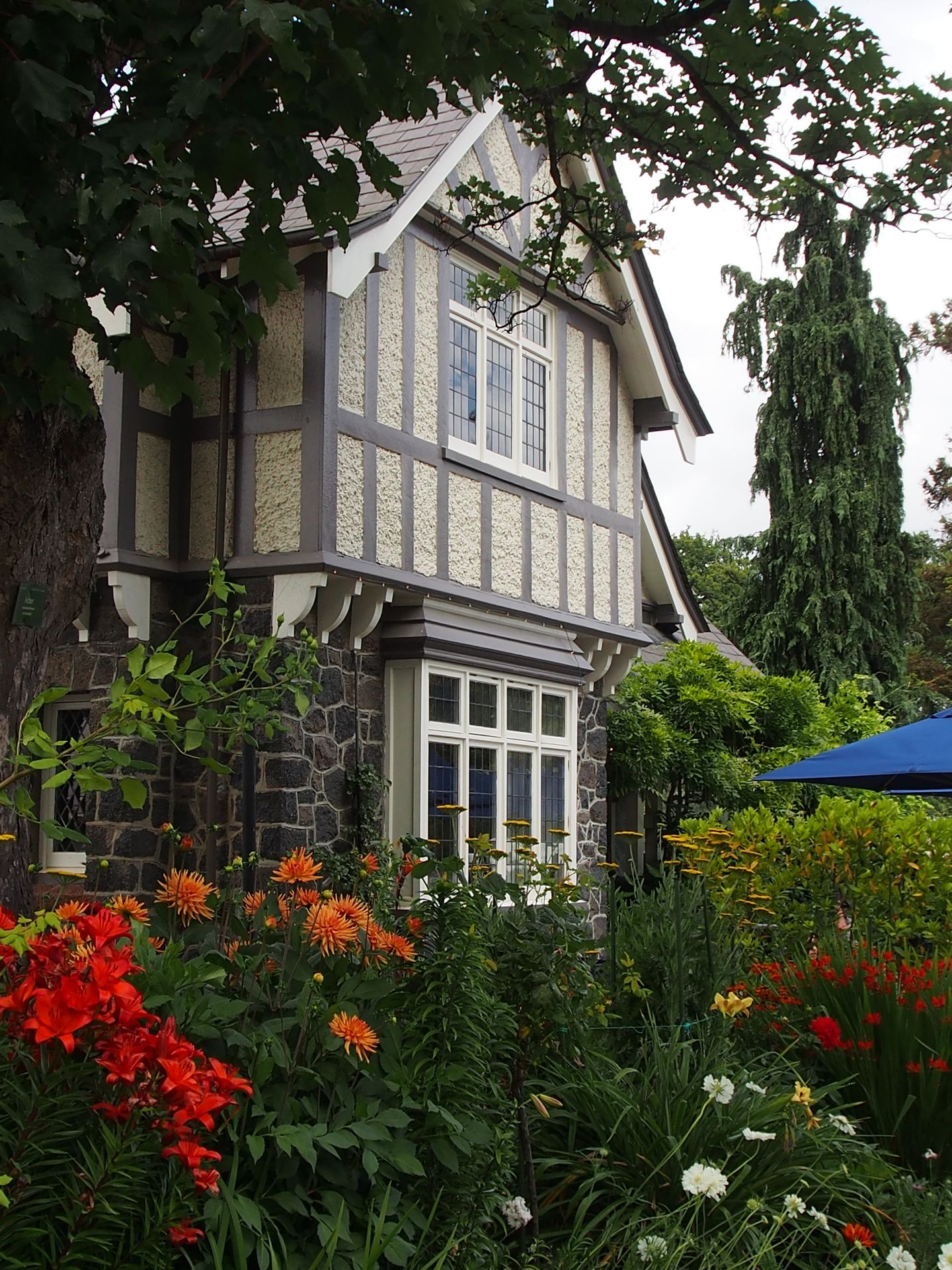
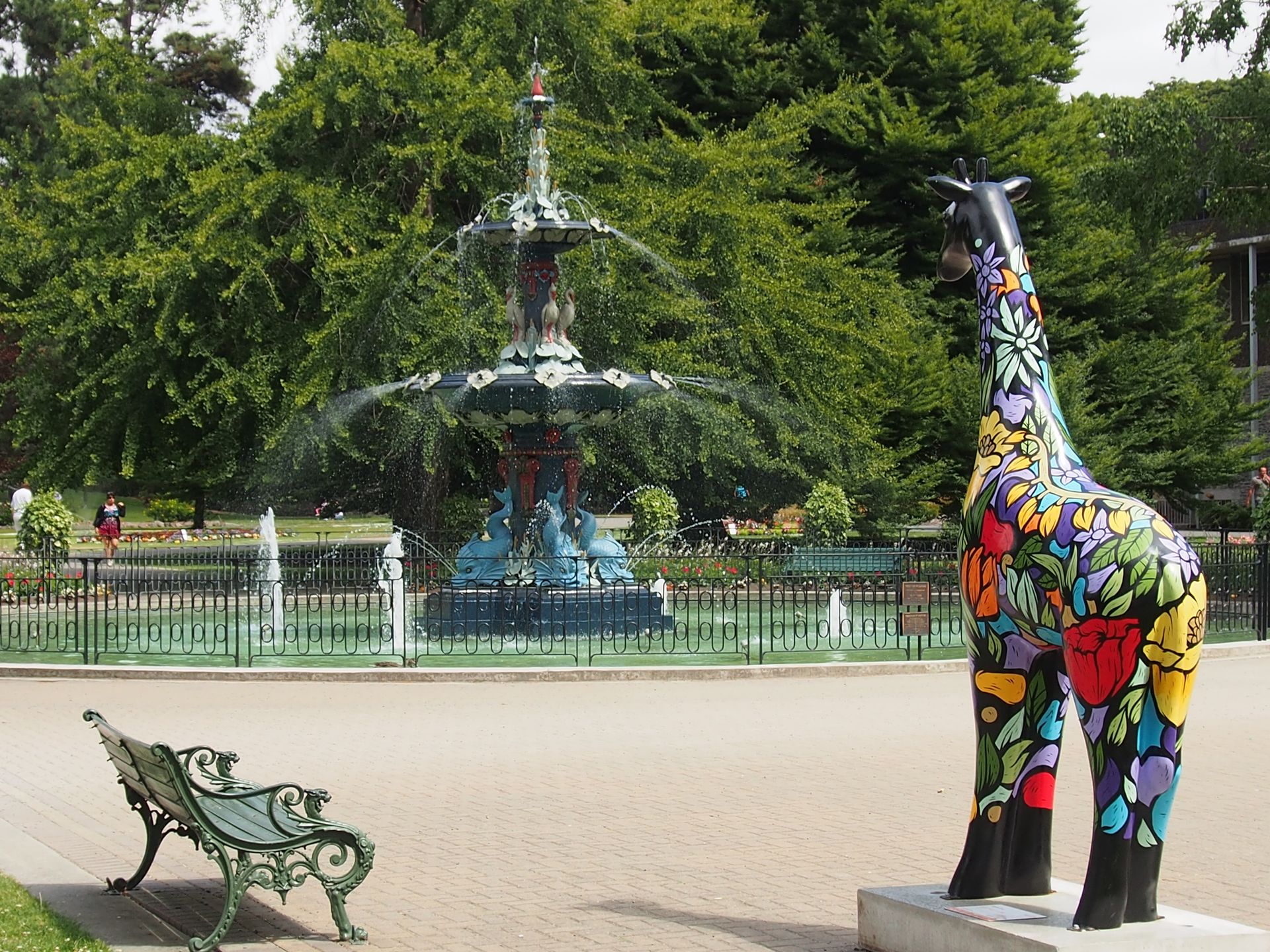
In Christchurch, you don't just need construction workers, but often historians and restorers for churches and these venerable institutions.
There are some really beautiful old wooden houses that are used as restaurants, hotels, or galleries - or they are actually inhabited.
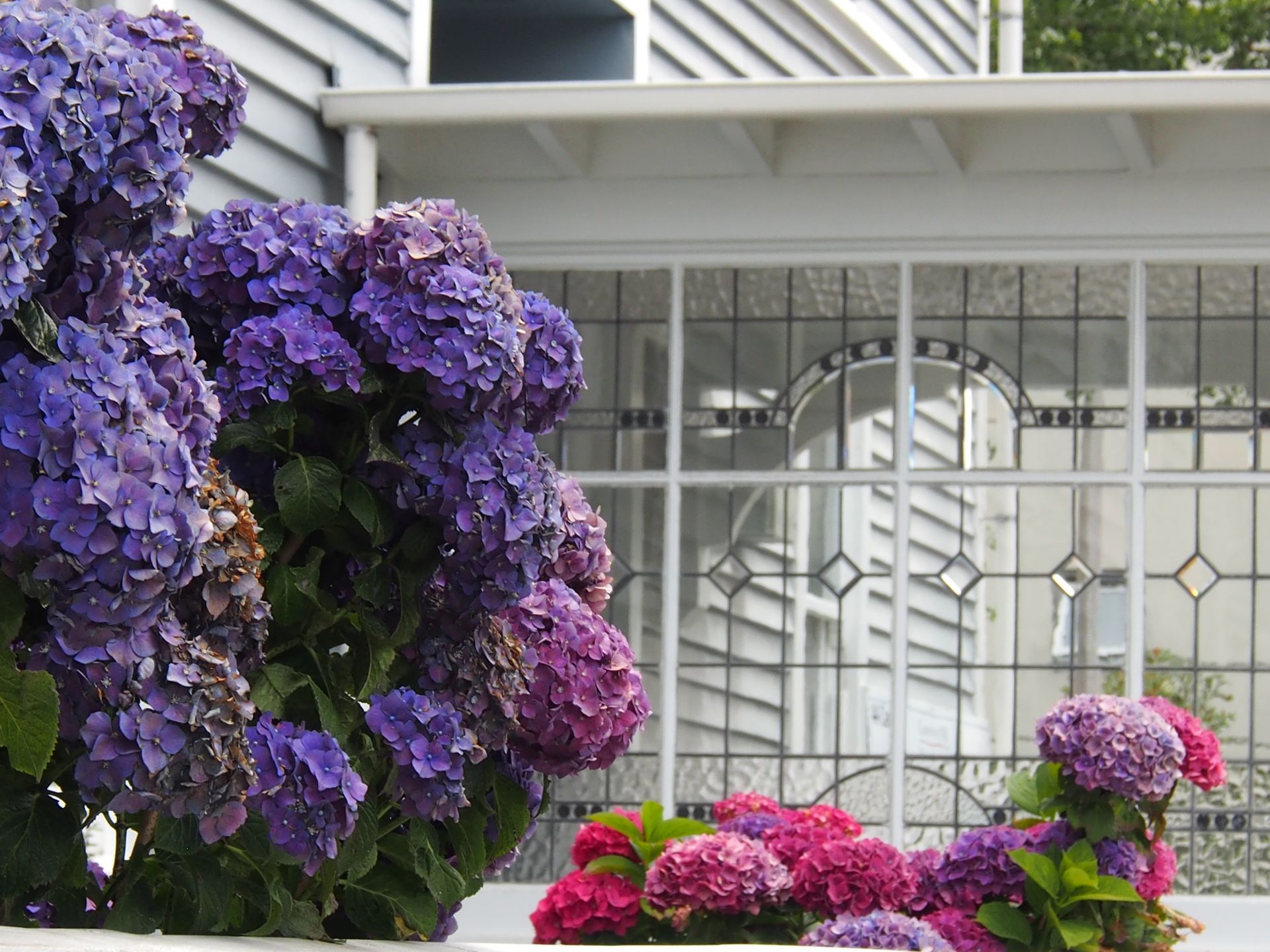
The Canterbury Museum, the museum of this Canterbury region to which Christchurch belongs, is also built in this style, in which both the Arts Center, the cathedral, and many other buildings in the city were built over 100 years ago and have survived many earthquakes until the one that occurred on February 11, 2011, which was extremely close to the surface and therefore caused such incredible damage and claimed 185 lives.
The Botanic Gardens, next to the Canterbury Museum, look nice. But today I don't want to explore a garden. Here, an old wooden house serves as a fancy café. A few steps further, and I follow the Avon River again, the calm river that almost encircles the inner area of the city center and where you can go punting! Punting is something like gondola rides in Venice. But I'm not in the mood for it, and it's also too chilly. But I'll check out the old boatshed, where the nice uniforms of the gondoliers are also hanging.
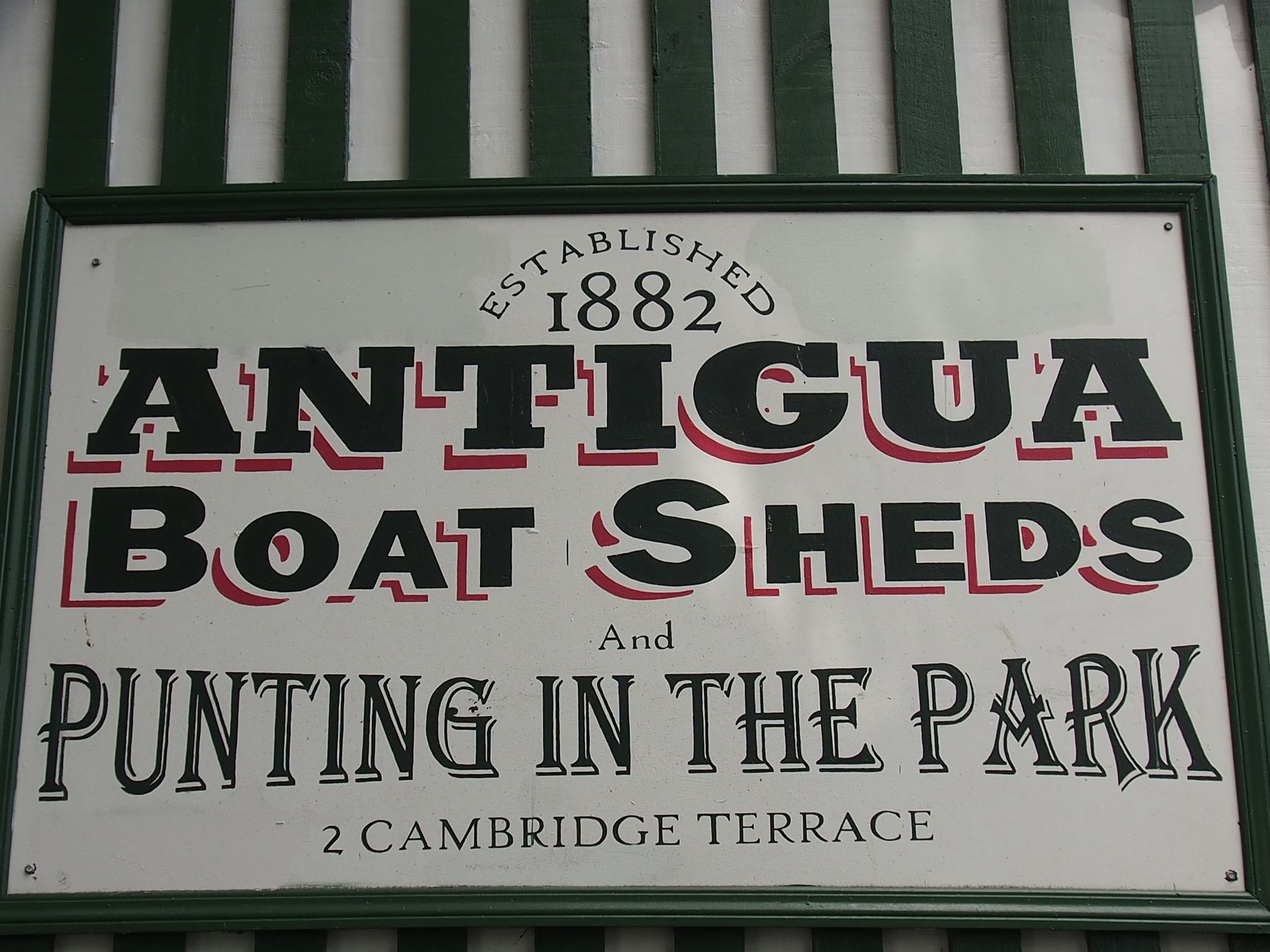
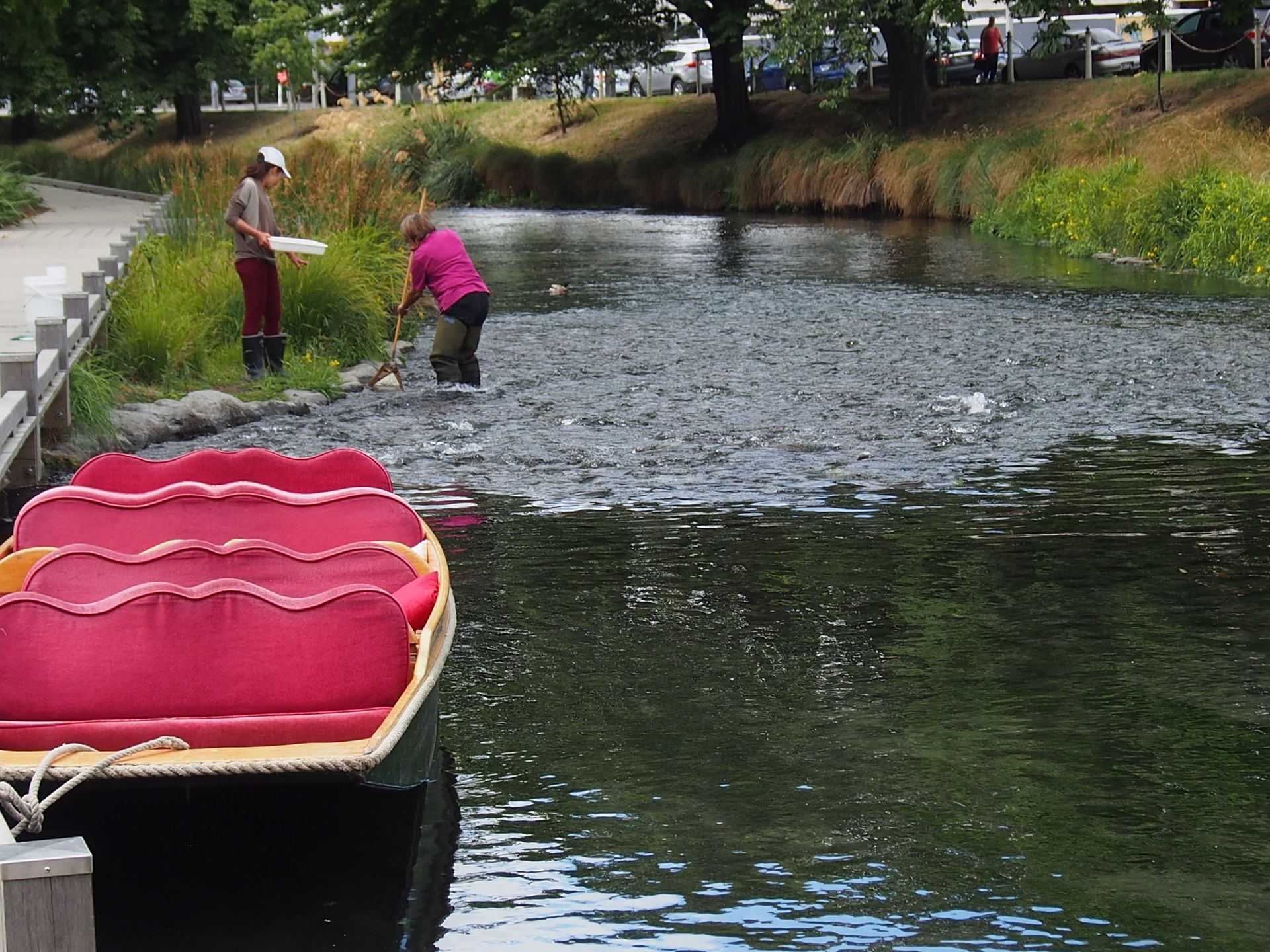
Then I'm back at Re:Start - the quirky shopping district of Christchurch, which is now the new center. Facades of old department stores are around the corner, boarded up and still closed due to the danger of collapse, and probably soon to be the next victims of the wrecking ball.
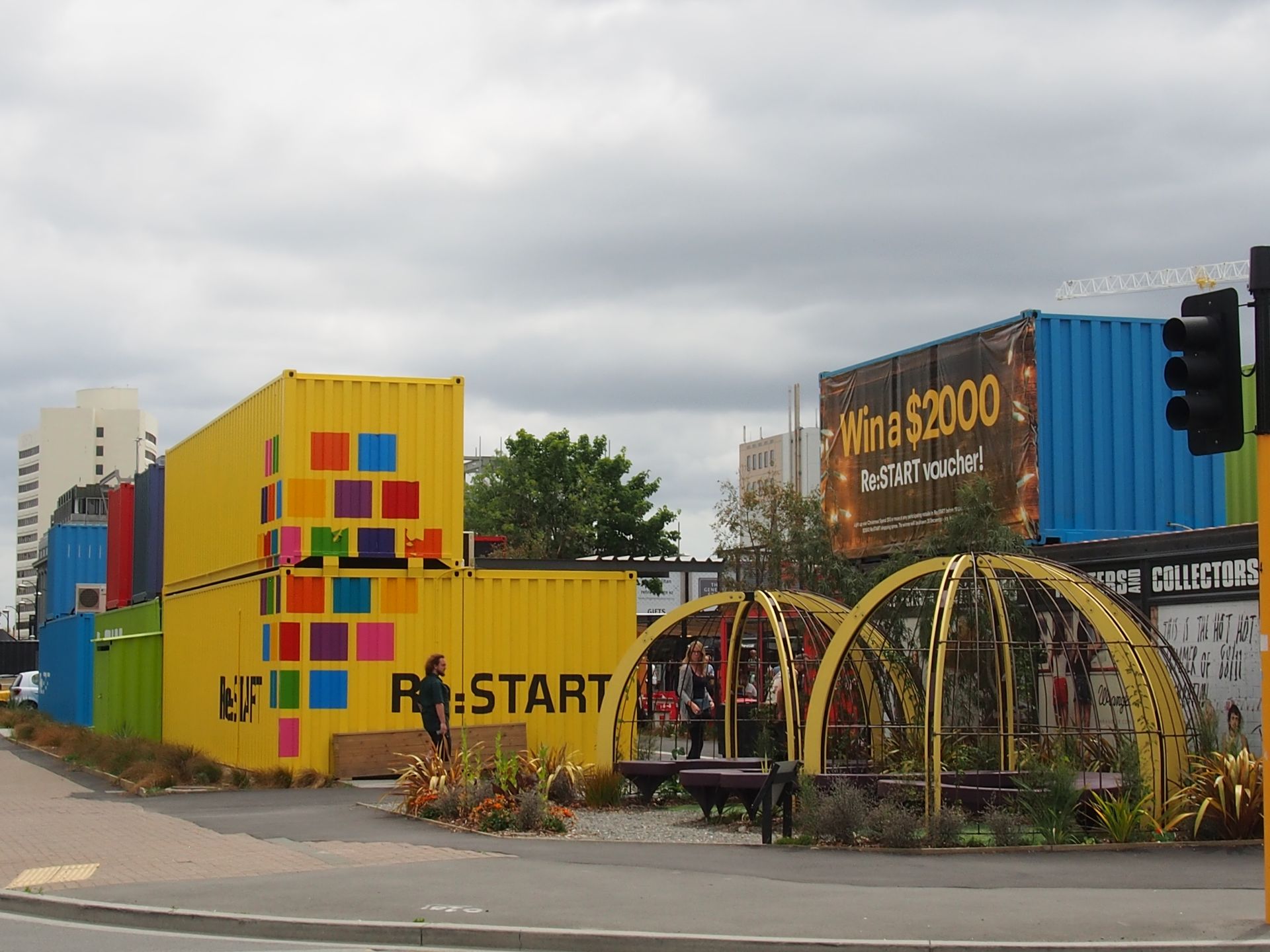
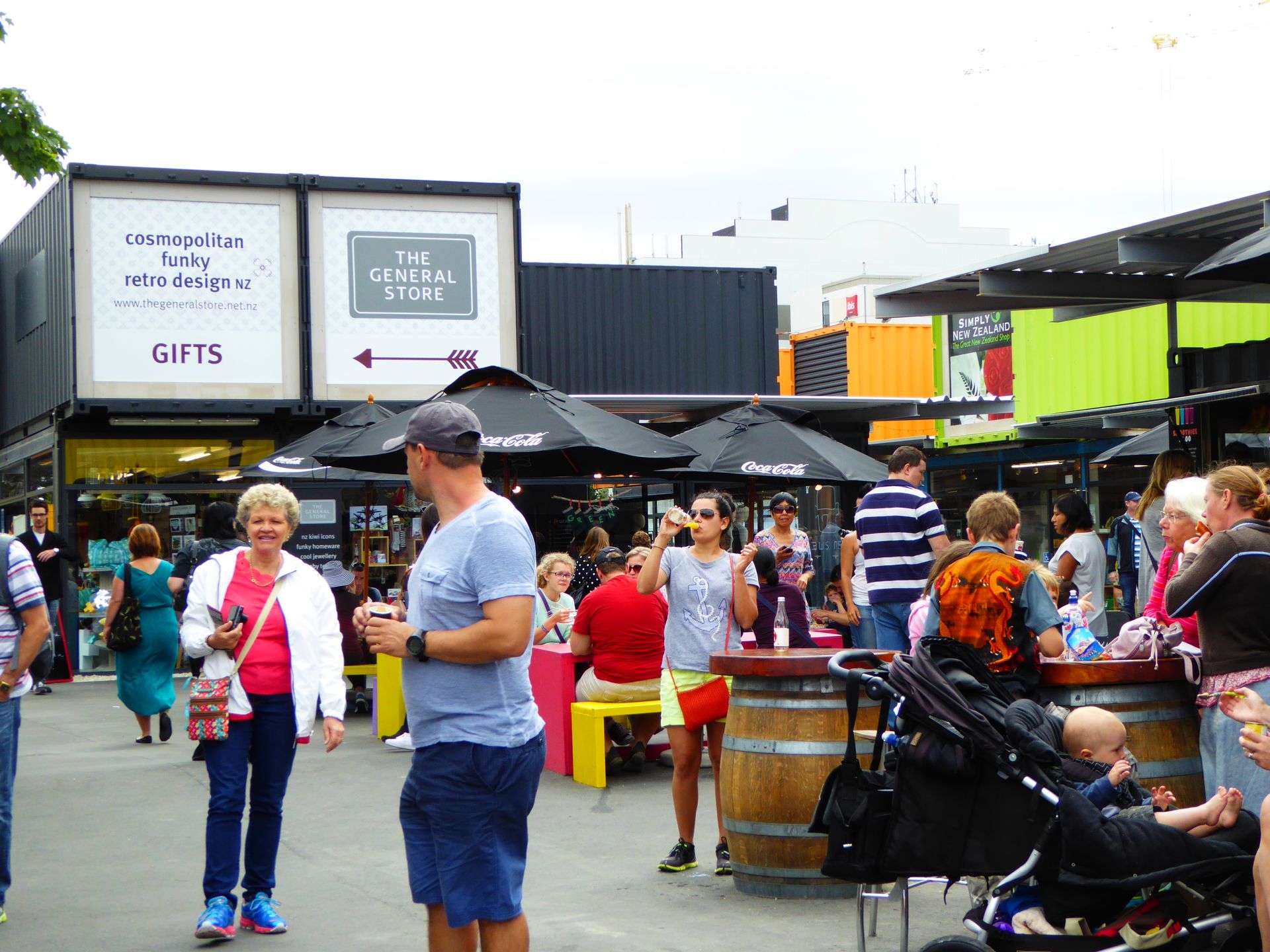
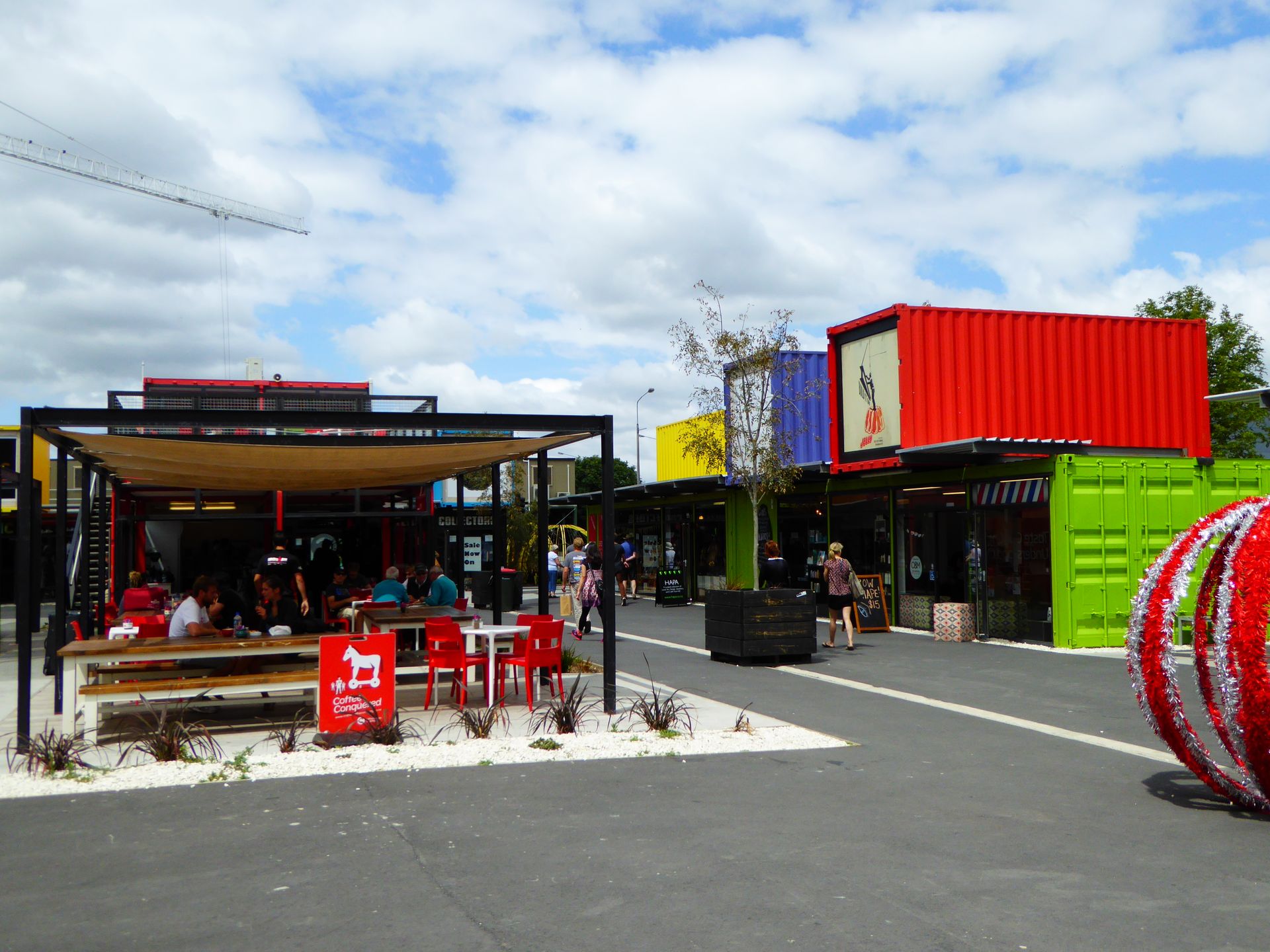
In Re:Start, they have set up colorful containers in which not only shops, but also banks and the post office have found a new home. In between are plenty of picnic tables, and both locals and tourists gather here. Right next to it is Quake City - the museum that deals with the earthquake history of the region, with a focus on the major earthquake on February 22, 2011.
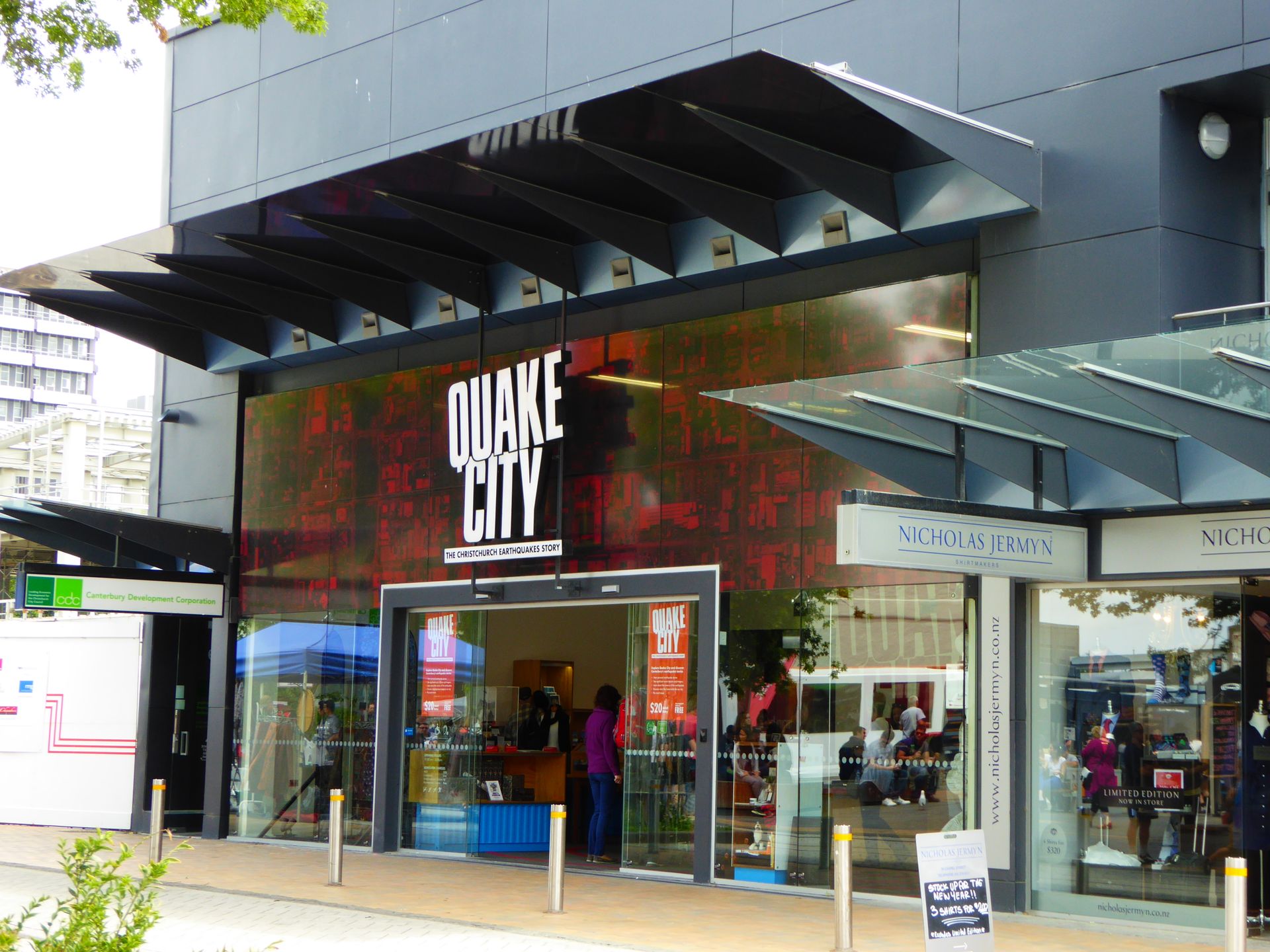
One year ago, I quickly walked through here and now I wanted to see the film in particular - a series of 15 interviews with survivors and their stories of where and how they survived. One person was on the 17th floor of a building, a woman sat in a small room in the cathedral and looked out the window while the floor next to her collapsed. A young woman who was buried in her office and lost her hand, a man who survived the earthquake unharmed but was thrown into a hole by one of the aftershocks and has been paralyzed since then - the stories couldn't be more different and they are moving. The earthquake had a magnitude of 5.9, not very strong, but the fact that it was so close to the surface made it deadly and destructive. There were over 1500 aftershocks in the 18 months that followed, and yesterday there was also an earthquake here.
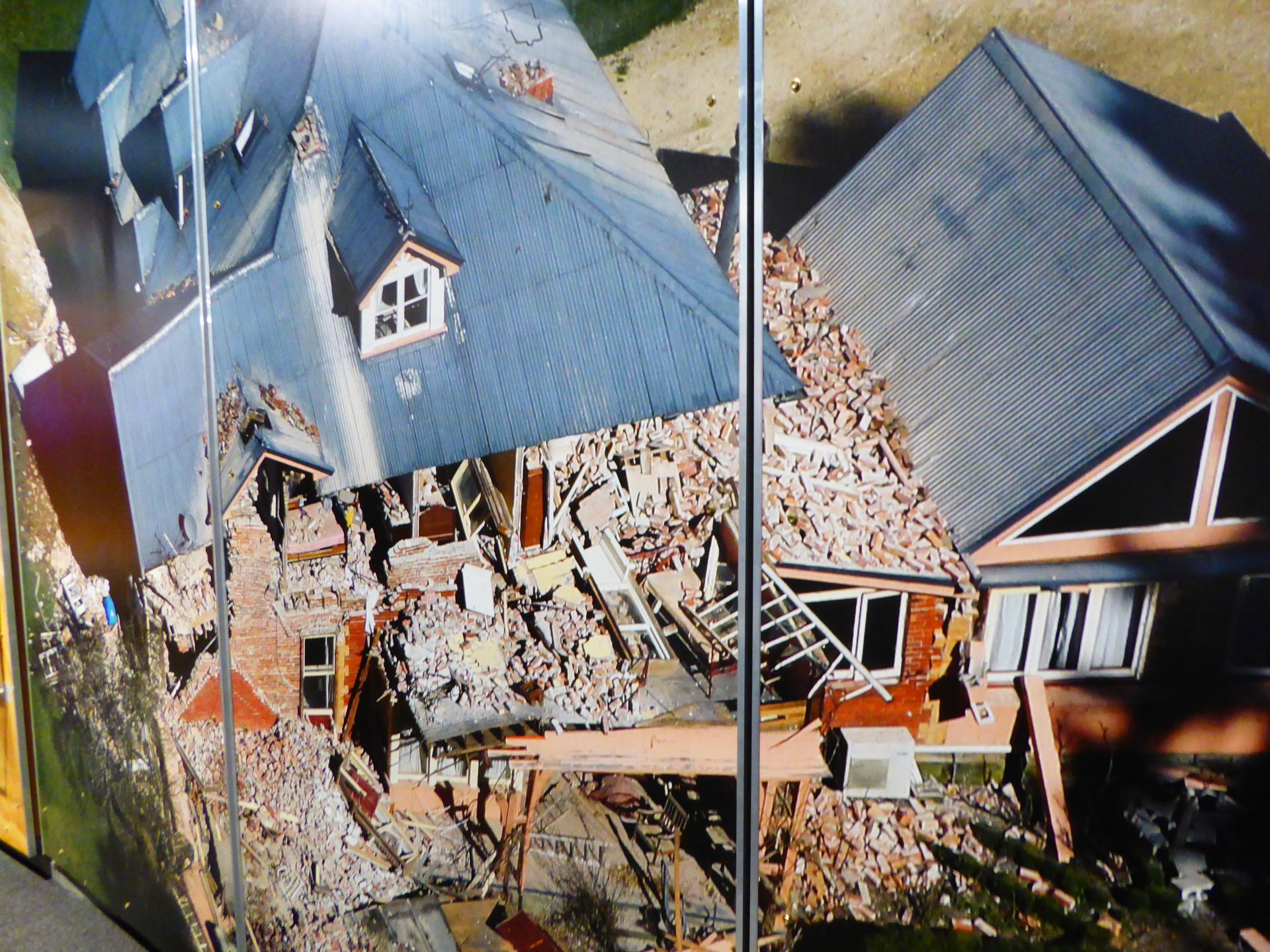
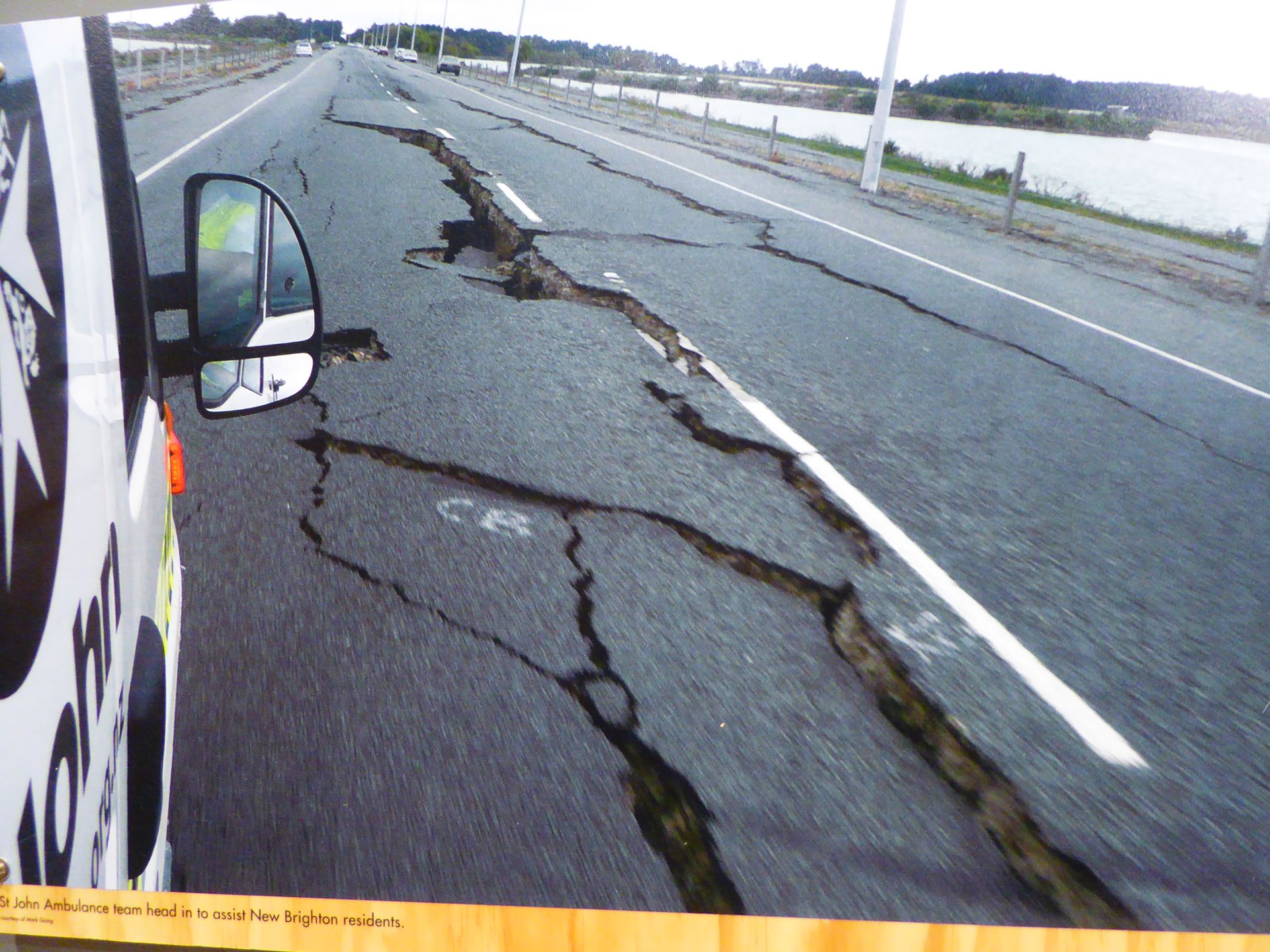
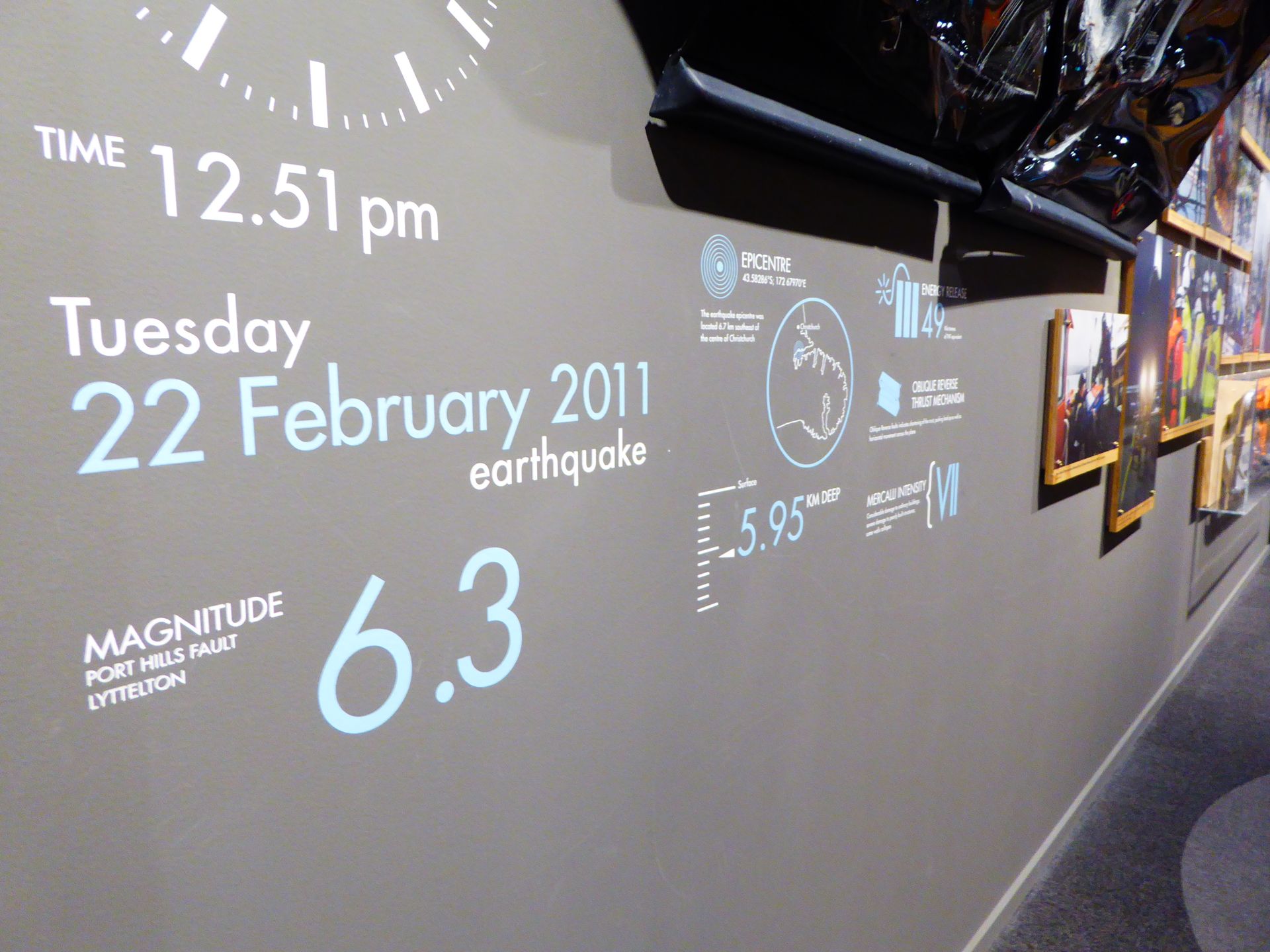
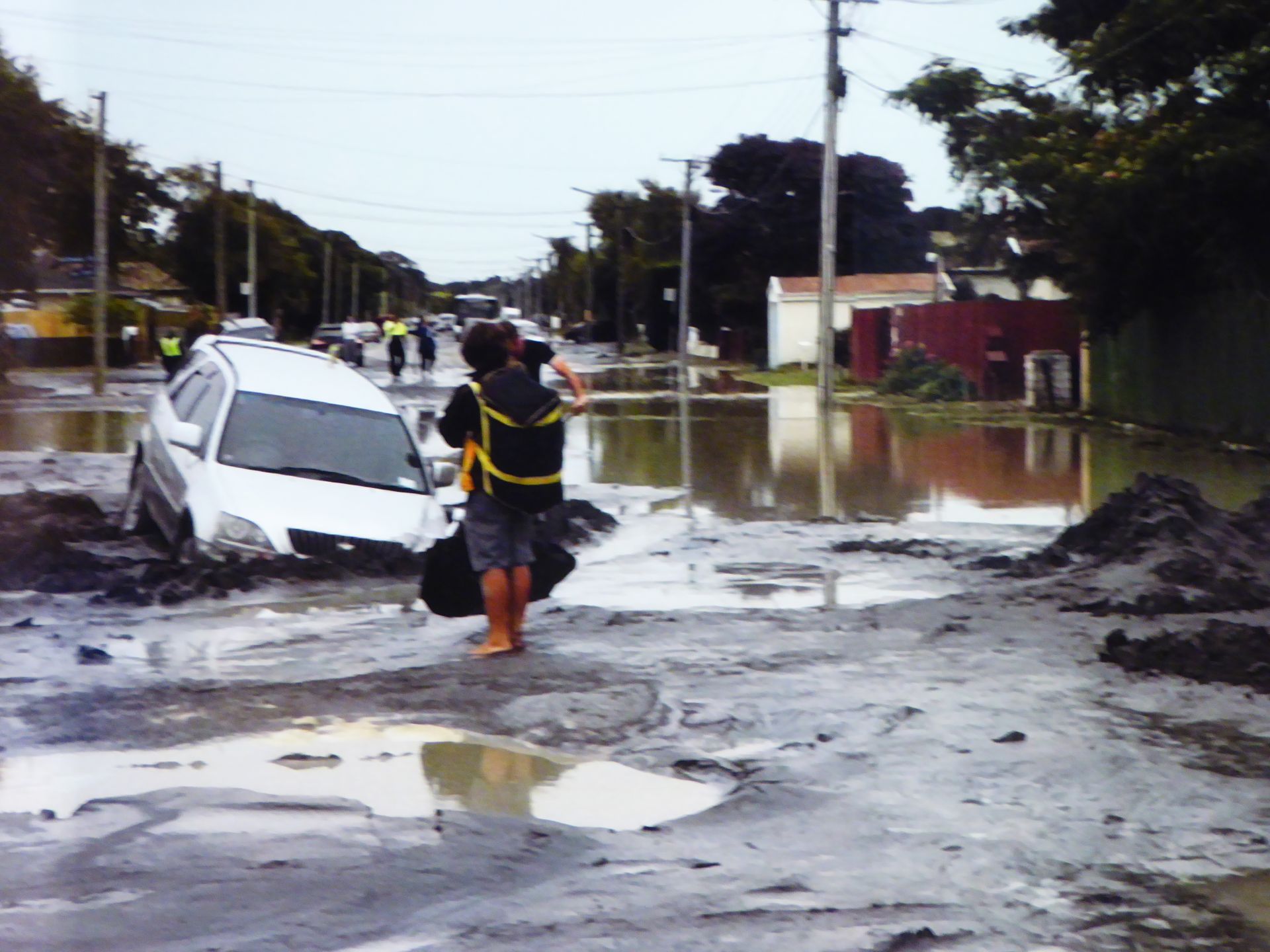
After the 2011 earthquake
Yesterday, there was a short earthquake with a magnitude of 6, 30km west of Arthurs Pass, which was felt in Christchurch. Mashanka, my Indian acquaintance from Picton, writes that her long-awaited train trip from Christchurch to Greymouth did not take place because Kiwirail is checking all the tracks before trains run again. So, she took a bus. However, the appeal of the train route is that it doesn't follow the same path as the road. Very unfortunate.
It's 2:00 PM when I leave there again, walk towards the old basilica, which is also heavily damaged, but unfortunately, I can't find the remains anymore. Now I have decided to drive to Willowpark Refuge because they have a kiwi house, and after 3 weeks, I finally want to see kiwis. It won't be possible to see them in the wild anymore. Fortunately, I have a navigation system on my phone, otherwise I wouldn't have found the hidden location. It is located northeast of the city center, and I have to pay 28 dollars admission. I skip all the other animals and head straight to the kiwi house. I am delighted to find that they have created a kind of enclosure where you can see the animals over a fence that is at best hip-high, rather than behind glass like in Queenstown.
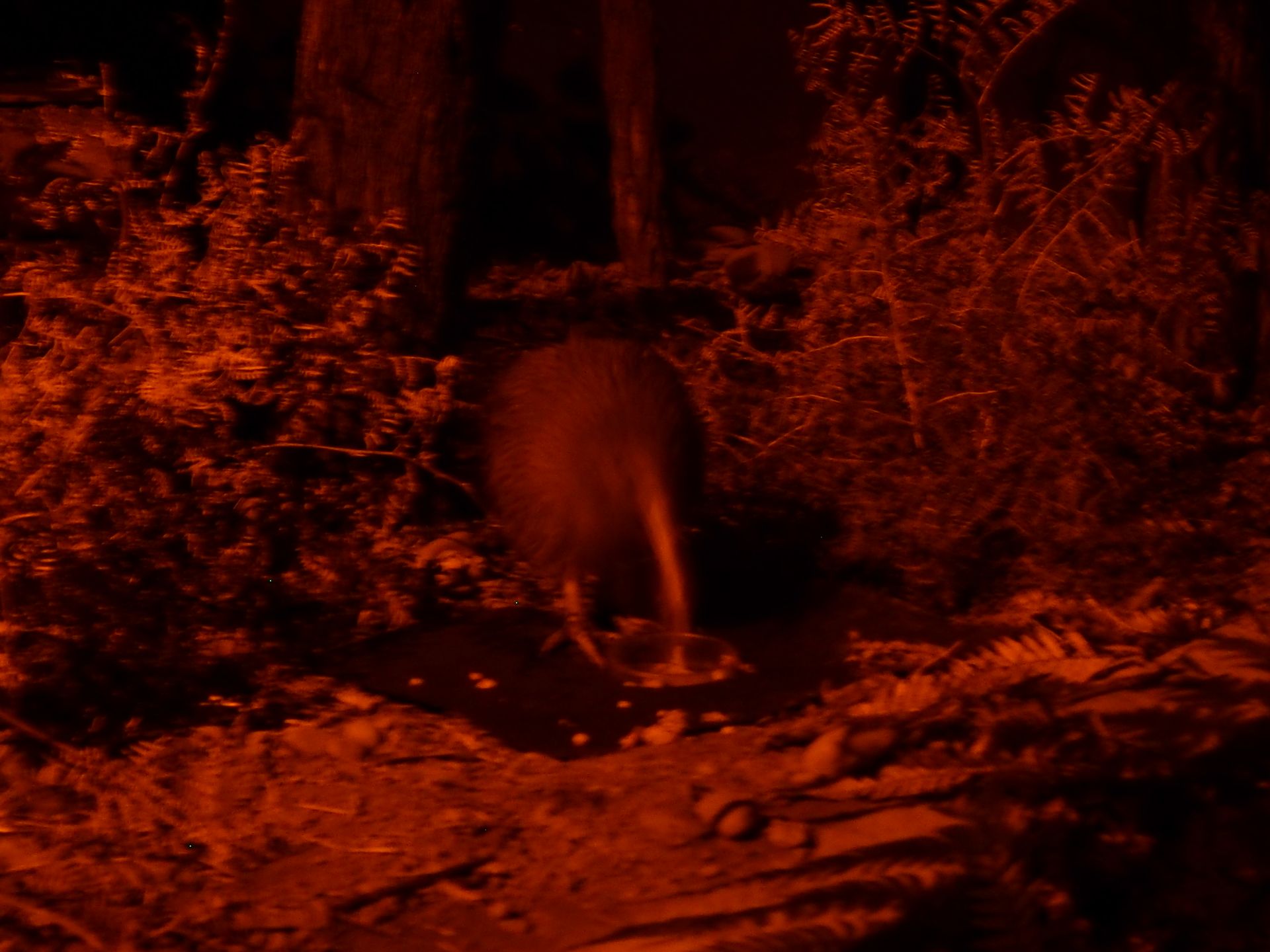
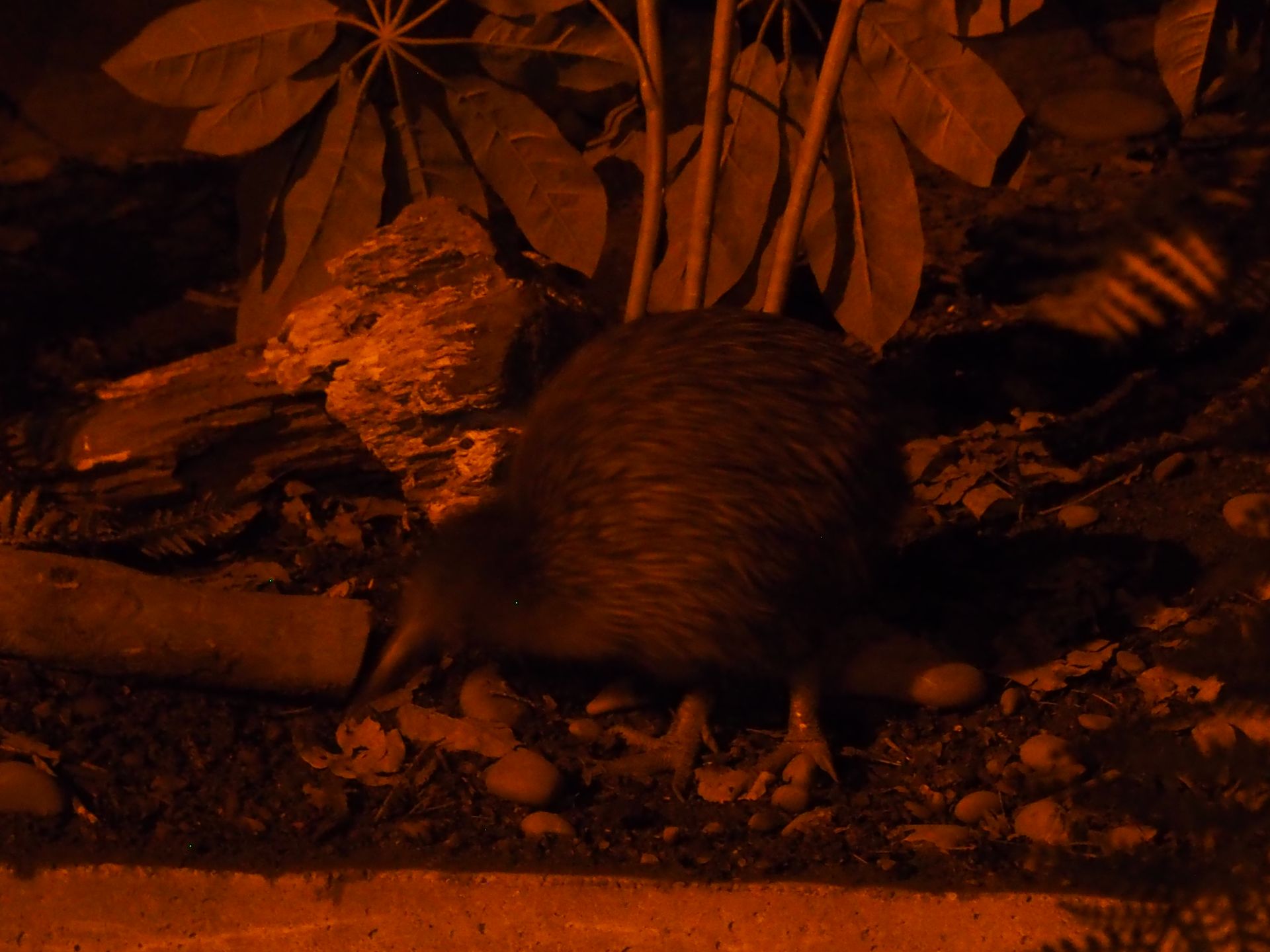
Naturally, it is a nocturnal house, and it takes a few minutes to see anything. But the kiwis are active and continuously pecking for insects in the ground. There are 6 kiwis here, and I have been able to observe 4 of them for a long time. To make it possible for visitors to see the animals, they practically have an inverted day/night rhythm, as it actually is. In their night, it is bright as day in the house, so that they can keep their nocturnal rest. Therefore, photography is only possible with long exposure, which, given the constant pecking of the kiwis, results in few usable photos. It's funny that you can actually hear the kiwis snuffling or sniffing. They have nostrils at the tip of their beak, with which they sniff out their food in the ground before poking their beak there, and since their beak is very long, they dig quite deep into the ground, which requires them to use their legs to pull their beak back out. I simply think kiwis are funny and spend an hour in the kiwi house watching the birds.
As a result, it's already half past four when I'm back at the exit, and I would like to have coffee at the café there, but the café is already closed. That's New Zealand for you. The park is open until 7:00 PM...
I'm sitting in the car consulting my map, briefly go online, check a guidebook to see if it makes sense to start the Scenic Highway that I want to drive tomorrow today - but it seems to me that the villages there are so small that there is nothing to stay in, and I don't feel like driving through several villages tonight to find accommodation.
After looking at the weather forecast for tomorrow, which looks very good, I decide to drive back to Rangiora and the Lilybrook Motel. Today, there is a different Chinese person at the motel, and he asks me if I want to stay in 'Loom Fow' (Room Four) again. Yes, Room Four would be nice. So, I move everything back into my old room, briefly drive to McDonald's because it's available here and I don't feel like going to the Chinese restaurant for the third time today.
Afterwards, I find a supermarket that has incredible poppy bread. If only I had found it earlier, it would have been my dinner tonight. Now it will be breakfast, including a piece of cheese. I replenish my supply of dried mangoes, which you can buy loose in many supermarkets here and they are just delicious. The prices for food in NZ still take some getting used to...
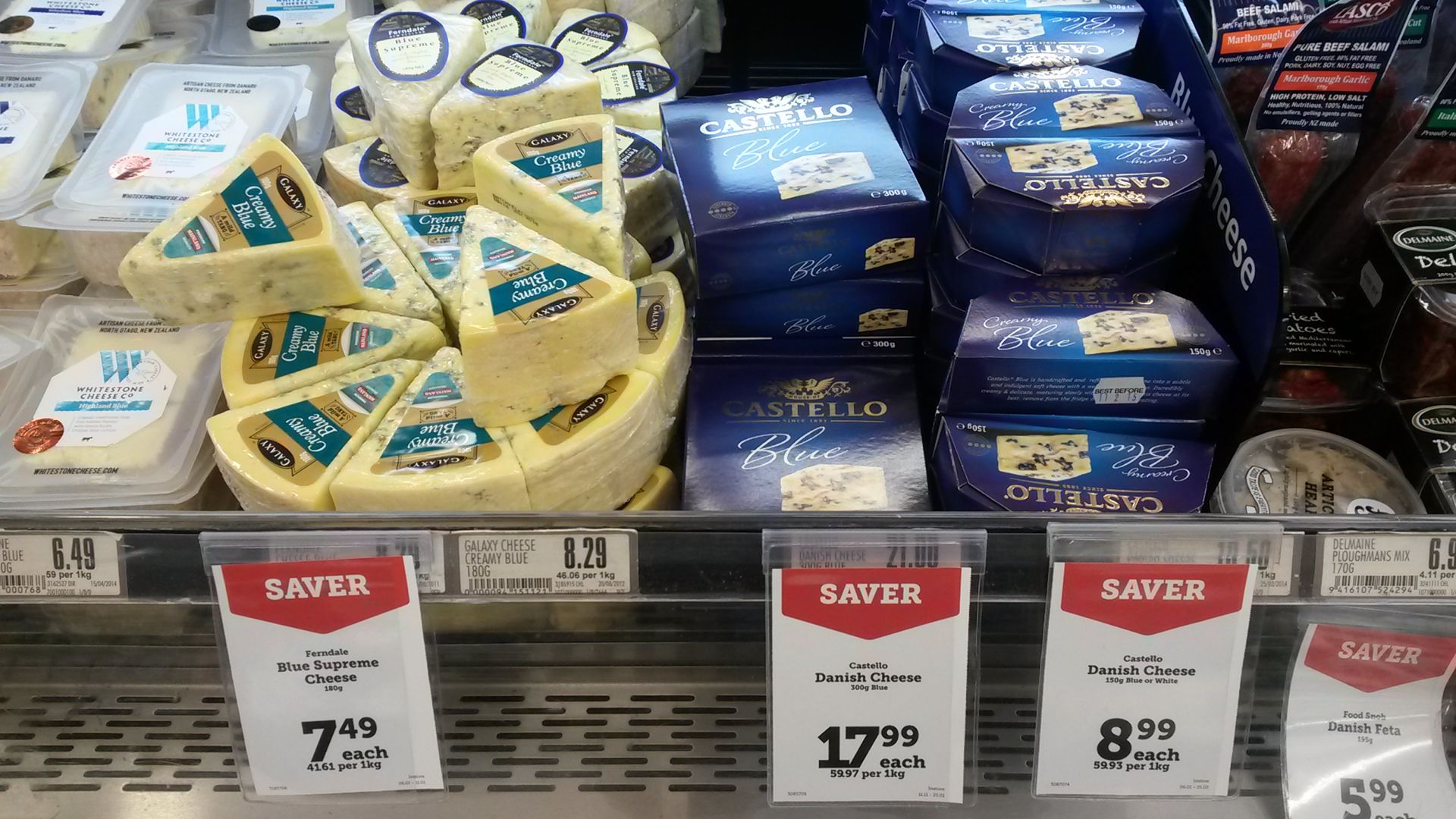
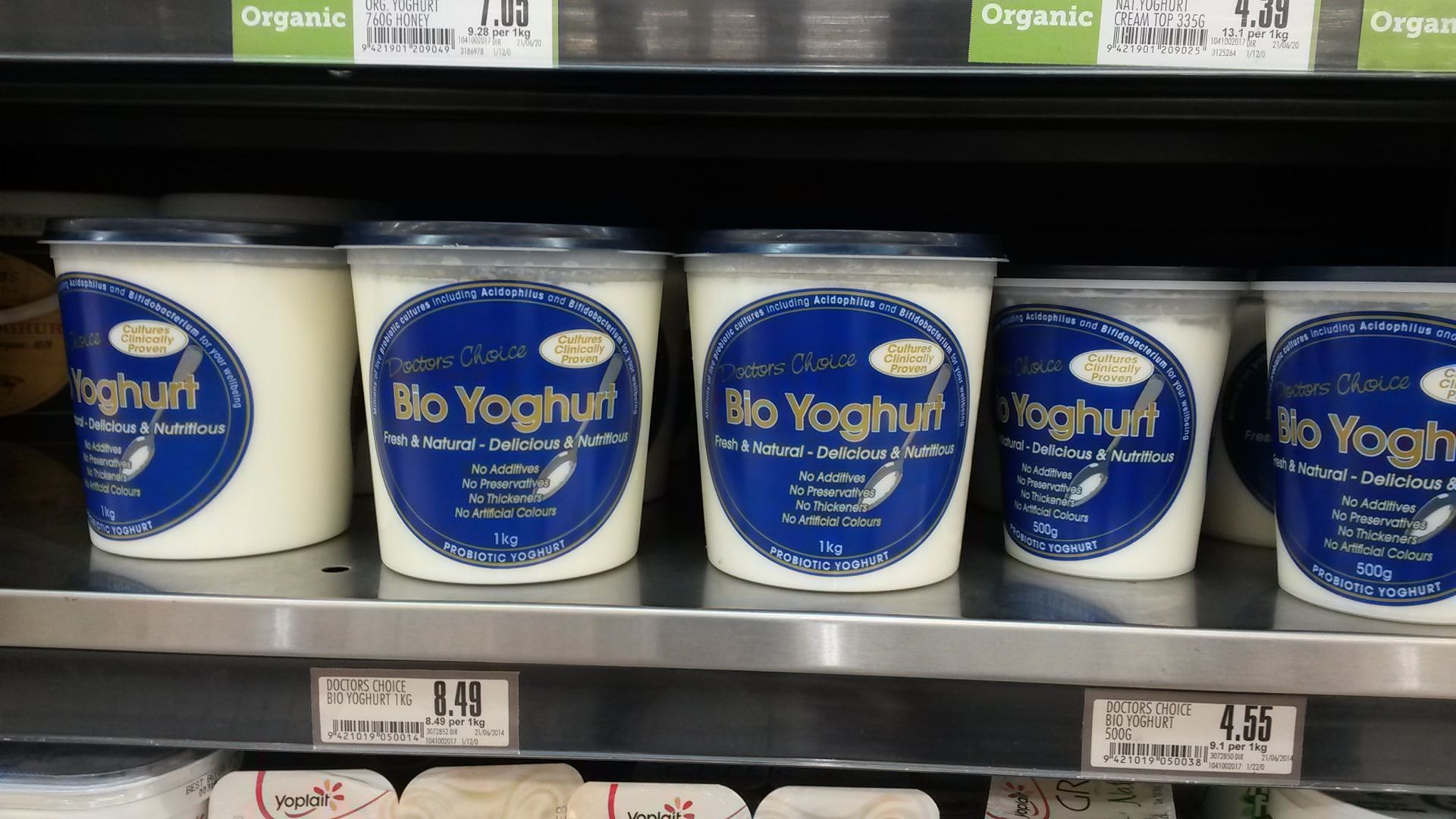
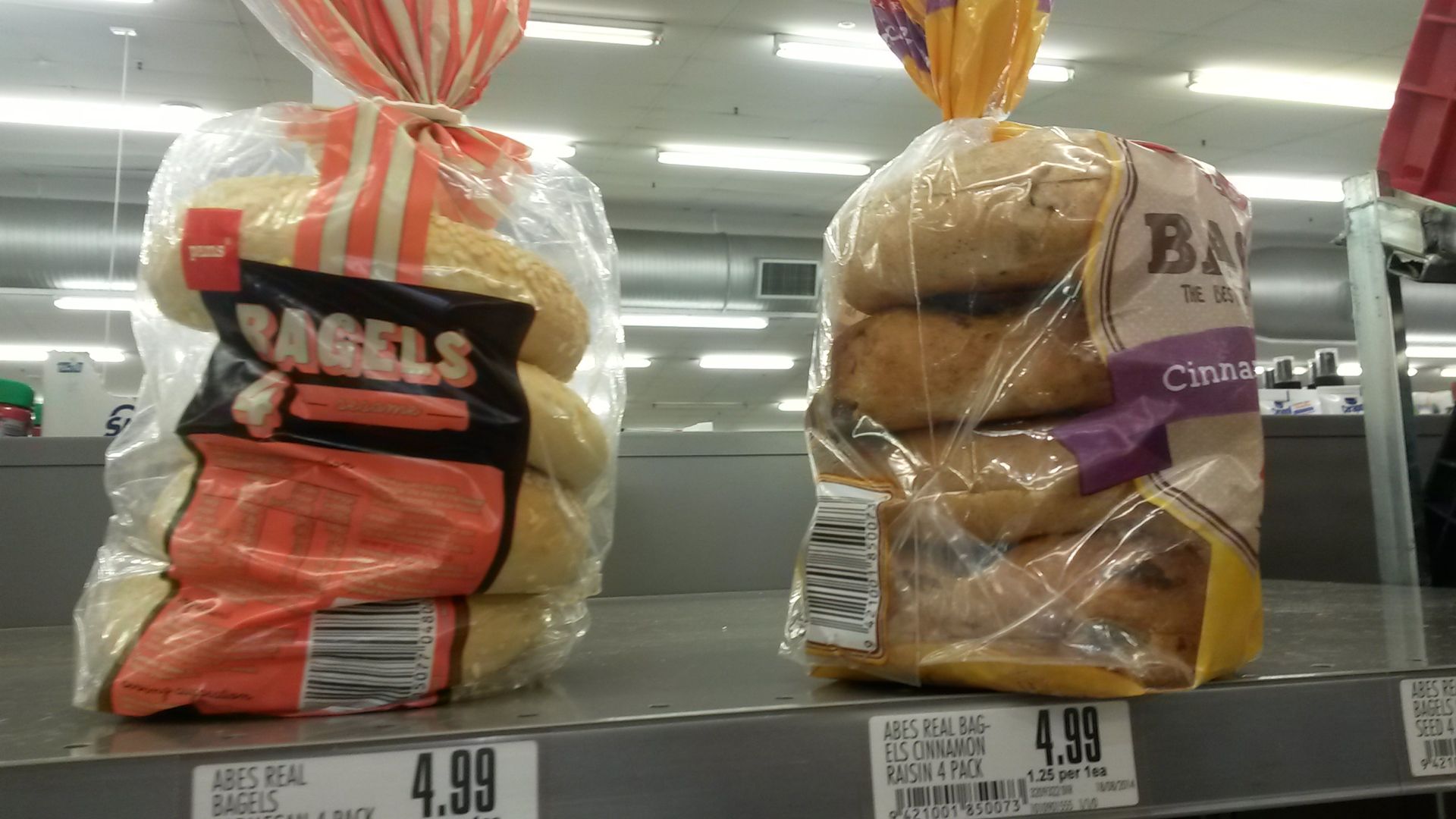
Back to the hotel and for once, not taking photos and writing in my journal until 11:00 PM. Today, I'm done by 9:30 PM. Bingo.
Daily distance: 67 km
समाचारपत्रस्य सदस्यतां गृहाण
उत्तरम्

यात्राप्रतिवेदनानि न्यूजीलैण्ड्
